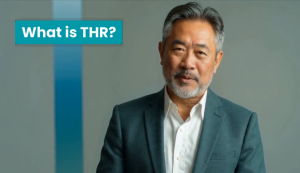Consumer voices must be heard prior to WHO FCTC COP11

A leading tobacco harm reduction advocacy is urging the Philippine government to include consumer perspectives in its preparations for the upcoming World Health Organisation’s 11th Conference of the Parties (COP11) of the Framework Convention on Tobacco Control (FCTC).
In a follow-up letter to the Department of Health, the Coalition of Asia Pacific Tobacco Harm Reduction Advocates (CAPHRA) is urging the Philippine government to include consumer perspectives in its preparations for the upcoming World Health Organisation’s 11th Conference of the Parties (COP11) of the Framework Convention on Tobacco Control (FCTC).
“We are deeply concerned that excluding consumer voices may result in policies that inadvertently harm public health,” stated Clarisse Virgino, CAPHRA Philippines representative. “The moratorium could push vapers back to smoking, undoing years of progress in tobacco harm reduction.”
CAPHRA’s appeal comes amidst growing concerns over the potential negative consequences of the proposed moratorium on vaping products in the Philippines. The organisation warns that such a move could lead to increased smoking rates and a surge in illicit trade of tobacco products.
“As the most affected stakeholders, adult consumers of safer nicotine products have invaluable insights to offer,” said Nancy Loucas, Executive Coordinator for CAPHRA. “Their real-life experiences and data are crucial for making informed decisions that truly represent all citizens.”
The organisation also addressed misconceptions about its nature and funding, clarifying that CAPHRA is an independent, grassroots consumer advocacy group with no ties to the tobacco or e-cigarette industries.
CAPHRA’s call for inclusion aligns with FCTC Articles 4.3 and 4.7, which emphasise the importance of civil society participation. The organisation expressed disappointment that some delegates have cited FCTC Article 5.3 as a reason to exclude consumer input, arguing that this interpretation is misguided and counterproductive.
“We remain committed to constructive dialogue and are ready to contribute our expertise to ensure that tobacco harm reduction policies are evidence-based and consumer-informed,” Loucas added.
CAPHRA urges the Philippine government and other FCTC parties to reconsider their stance and engage with consumer advocates in the lead-up to COP11, scheduled for November 2025.
CAPHRA emphasised the critical importance of consumer input in shaping policies that directly impact public health and individual rights. The organisation highlighted the legitimate process within the FCTC that allows for stakeholder participation, including consumers of safer nicotine products.
“We are deeply concerned that excluding consumer voices may result in policies that inadvertently harm public health,” stated Clarisse Virgino, CAPHRA Philippines representative. “The moratorium could push vapers back to smoking, undoing years of progress in tobacco harm reduction.”
CAPHRA’s appeal comes amidst growing concerns over the potential negative consequences of the proposed moratorium on vaping products in the Philippines. The organisation warns that such a move could lead to increased smoking rates and a surge in illicit trade of tobacco products.
“As the most affected stakeholders, adult consumers of safer nicotine products have invaluable insights to offer,” said Nancy Loucas, Executive Coordinator for CAPHRA. “Their real-life experiences and data are crucial for making informed decisions that truly represent all citizens.”
The organisation also addressed misconceptions about its nature and funding, clarifying that CAPHRA is an independent, grassroots consumer advocacy group with no ties to the tobacco or e-cigarette industries.
CAPHRA’s call for inclusion aligns with FCTC Articles 4.3 and 4.7, which emphasise the importance of civil society participation. The organisation expressed disappointment that some delegates have cited FCTC Article 5.3 as a reason to exclude consumer input, arguing that this interpretation is misguided and counterproductive.
“We remain committed to constructive dialogue and are ready to contribute our expertise to ensure that tobacco harm reduction policies are evidence-based and consumer-informed,” Loucas added.
CAPHRA urges the Philippine government and other FCTC parties to reconsider their stance and engage with consumer advocates in the lead-up to COP11, scheduled for November 2025.






